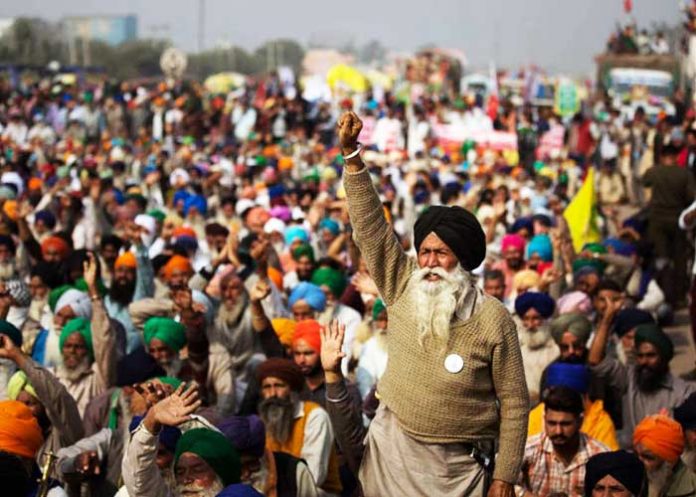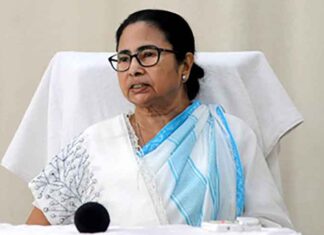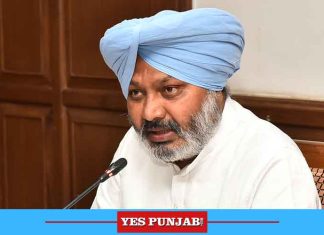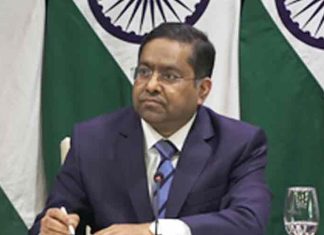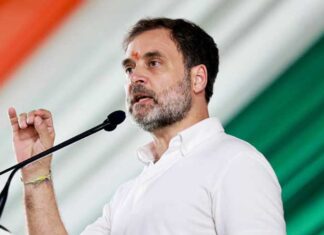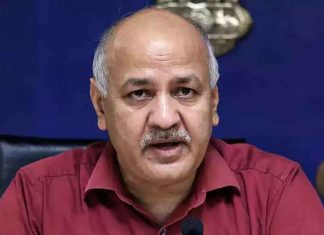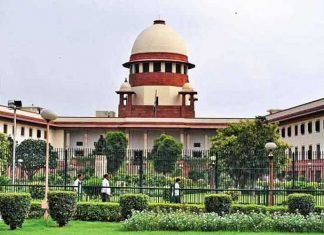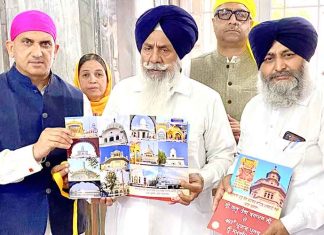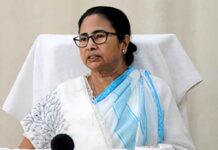Almost three months have passed since the 41 kisan unions of the country have launched agitation against the three farm laws passed by the NDA government led by Narendra Modi. The agitating unions have held twelve rounds of talks with the Union government but so far no solution has been found.
At the last meeting, the Union Government offered to suspend the implementation of the farm laws for eighteen months and form a committee consisting of the experts of agriculture, representatives of the kisan unions and the government to discuss the laws and bring about changes in the same.
But the kisan unions are adamant on seeking the repeal of the farm laws which they feel are harmful to the farming community and favour only the corporate houses. After the 26 January, 2021 Republic Day parade of tractors by the kisan unions and incidents of violence at Red Fort in Delhi, there is dead-lock in the negotiations and both sides-government and the farm unions are sticking to their stands.
Background of formation of Kisan Unions
The kisan movement started in Punjab in 1972 with the formation of Punjab Kheti Barhi Union with the merger of eleven unions with Mohinder Singh Jawanda as President and Ajmer Singh Lakhowal as General Secretary respectively. It was in 1990, that the Punjab Kheti Barhi Union was transformed into Bhartya Kisan Union with Bhupinder Singh Mann as President and Lakhowal as the general secteraty.
This newly revamped organization took up the issues facing the farming community in Punjab and in 1984 gheraod the Raj Bhawan of Punjab Governor BD Pandey and the gherao continued for one week. This was done under the leadership of Bhupinder Singh Mann. But in 1988, Bhupinder Singh Mann left the BKU and joined politics and became a member of Rajya Sabha.
In the meantime, Mohinder Singh Tikait was active in Utter Pradesh and he alongwith Ajmer Singh Lakhowal formed the All India Kisan Union Mohinder Singh Tikait as President and Ajmer Singh as general secretary with the formation of All India Kisan Union, the farmers movement in the country got impetus and it started fighting for the cause of the farmers.
Ajmer Singh Lakhowal told me that under the leadership of Mohinder Singh Tikait, they took up the problems of UP farmers and fought for the issue of sugarcane price and other crops. They held their dharna for one week at the Boat Club near parliament house.
According to Lakhowal Bhupinder Singh Mann separated from them in 1993. As a matter of fact, the Kisan Sabha movement started in Bihar in 1929 under the leadership of Bihar Provincial Kisan Sabha to mobilize the peasant grievances against zamidari attacks and their occupancy rights under the leadership of Sahajanand Sarswati. Gradually the peasant movement got intensified and spread across rest of India.
The formation of the Congress Socialist Party (CSP) in 1934 helped the Communists to work together with the Indian National Congress. In 1935, prominent peasant leaders NG Ranga and EMS Namboodripad worked together as secretary and joint secretary of South Indian Federation of Peasant and Agricultural labour.
All these developments culminated into formation of the All India Kisan Sabha at Lucknow session of the Indian National Congress in 1936. In the subsequent years, the movement was increasingly dominated by Communists and Socialists.
Even Jayaparkash Naryan also headed a Kisan Sabha and the Communist led All India Kisan Sabha remained very active after freedom of the country.
The Communist Party of India launched anti betterment levy agitation in Punjab in 1958-59 which was crushed by Partap Singh Kairon. Atrocities were committed on the participants and the national leaders of the CPI namely Ajoy Ghosh, AK Gopalan, Mrs. Renu Chakravarti and ZA Randeeve also visited villages in Ludhiana district where the police had committed atrocities on the CPI workers and their families.
As a matter of fact, Punjab farmers have been leading the movements for the cause of the farming community and have remained at the forefront both in the fight for the rights of the farmers and also have been instrumental in eradicating the food deficit of the country. The Punjab farmers despite being uprooted with the partition of the country and their distruption were able to settle in the East Punjab soon and took up the challenges of producing more foodgrains to meet the food requirements.
It was because of the untiring efforts of the Punjab farmers and help provided by the scientists of the Punjab Agricultural University in 1963-64, that ‘green revolution’ was ushered in Punjab. The hardy Punjab farmers forgot their losses caused by the partition which took lives of more than five lakh people as a result of population migration of Hindus and Sikhs on one side and the muslims on the other.
The hard working and enterprising farmers of Punjab produced bumper crops of wheat and rice and filled the coffers of the national kitty. Alas they were not treated well by the successive governments in the Centre and Punjab for the glorious contribution. The Congress gave a one time loan waiver of Rs. 67,000 crores to the farming community in the country. But Punjab could not get much share from the same-rather the rural indebtedness in Punjab increased manifold.
Punjab is not a rice eating state, but led the rice revolution which helped the rice consuming states. The rice revolution has caused depletion of underground water in Punjab and the distribution of river waters among three states of Punjab, Haryana and Rajasthan was also discriminatory and Punjab has been the biggest loser of water of its rivers. The farmers in Punjab are under severe stress and a large number of them have committed suicide due to heavy debt.
With the rise in agricultural production and rising stress, a number of kisan unions have come up in the state. There are about 32 kisan unions at present and majority of them are non-political but some have left-influence and some are with the Shiromini Akali Dal. Mansa district which is a backward district in Punjab has the maximum number of eight kisan unions.
These kisan unions represent all types of kisans big, small and marginal besides, the farm labourers. Many unions have ladies as members. Kisan Union Ekta (Ugrahan) led by Joginder Singh has more than five thousand ladies as members. At present all these kisan unions are camping at Singhu border, Tikri border and Gazipur border respectively. Gazipur border has farmers from UP which is led by Rakesh Tikait. There are some farmers who are at Rajasthan-Delhi border as well.
Although some of the kisan unions have ideological differences but they are united on the issue of repealing of three farm laws and grant of minimum support price (MSP) with a legal guarantee.
The NDA government conceded the demands of cancellation of the law pertaining to the fine of Rs. 1 crore for stubble burning and amendment in the electricity bill. These unions are receiving political support of the different political parties but they have not allowed any political leader to come to their stage.
The Punjab Chief Minister Amarinder Singh at a special session of the vidhan sabha has rejected the three laws passed by the NDA government and has provided criminal proceedings against those who will not purchase wheat and paddy at the MSP with imprisonment of three years. However, the Punjab Governor has not forwarded the laws passed by the Punjab vidhan sabha to the President of India. Amarinder Singh has announced to bring new laws in the budget session of the Punjab vidhan sabha.
The Shiromini Akali Dal led by Sukhbir Singh Badal received a setback when it supported the three central farm laws and later Harsimrat Badal who was minister in the union cabinet had to resign and Akali Dal withdrew from the NDA as well. Sukhbir Singh Badal and his wife have made strong attacks against the NDA government for passing these central laws but still they have not recovered the lost ground. They have to work very hard to win the confidence of the farmers before 2022 vidhan sabha elections.
The Aam Aadmi Party (AAP) is also making strenuous efforts to create ground for its political victory in the vidhan sabha elections. Both the Akali Dal and the AAP are targeting only Amarinder Singh Chief Minister. Their attacks are not cutting much ice so far.
The Tractor Parade by the Kisan Unions on January 26 – to celebrate Republic Day has given some setback to the agitation by the kisan unions and the NDA government had adopted a rigid attitude notwithstanding the fact that the Prime Minister and other ministers of the government are making offers of talks to the farmers unions. But so far no formal invitation has been extended to them for fresh talks after the talks of January 20 when the government offered them suspension of farm laws for eighteen months.
Many farmers had returned to their homes after the violence of January 26. But they have started returning to the base camps at Singhu border, Tikri Border and Gazipur Border. The credit for the revival of the moment can be given to Rakesh Tikait who became emotional when the police came to wind up the camp on Gazipur border.
It was after the emotional outburst that series of Mahapanchayats have been held at various places in Haryana and UP and one in Jagraon in Punjab which have attracted record gatherings and response from the farmers throughout the states has been unprecedented. Thousands of farmers are thronging these Mahapanchayats and extending support to the agitating farmers. The kisan unions have regained the strength and confidence to press for their demands.
The Sanyukt Morcha of the kisan unions has decided to organize Mahapanchayats in states other than Punjab, Haryana and UP. They are hoping to hold such panchayats in Maharashtra and Gujarat.
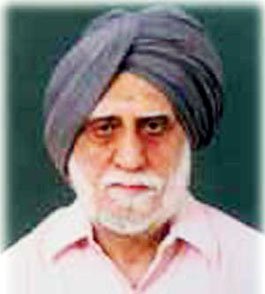 The claim of the NDA government that only the Punjab farmers are agitating, has been proved wrong as farmers from almost all the states have either participated in the agitation or extended support to it. The farmers of Southern states like Karnataka, Tamil Nadu, Kerala and Maharashtra have been extending their support to the agitation and they could not come to Delhi because of long distance.
The claim of the NDA government that only the Punjab farmers are agitating, has been proved wrong as farmers from almost all the states have either participated in the agitation or extended support to it. The farmers of Southern states like Karnataka, Tamil Nadu, Kerala and Maharashtra have been extending their support to the agitation and they could not come to Delhi because of long distance.
Meanwhile the Delhi police have arrested Deep Sidhu and some other persons under various sections of the Indian Penal Code including sedition for indulging in violence on January 26 at the Red Fort. The police have also made strong fortifications all along the borders on Singhu border, Tikri border and Gazipur border respectively. There are more than five layers of barricades to prevent the entry to the agitators in the national capital.
Who will break the ice first now to start fresh talks between the kisan unions and the government? This is the moot question.
KS Chawla is a senior journalist based at Ludhiana.
Can be reached at : [email protected]
Mobile : 99886-44244
Congress captures Urban Bodies in Punjab leaving others far behind – by KS Chawla



